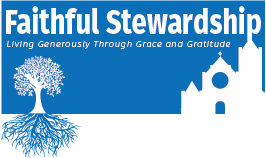Last week on a beautiful Mississippi spring day, I drove to Amite and Jefferson counties to do some family history research. On my return to Jackson, I drove through rich farmland where the soil has recently been prepared for planting of the seeds that will result in a bountiful harvest for the farmers who work those fields.
I also drove on the Natchez Trace where the pine trees on either side of the road were pollinating. It was an amazing sight to see all that pollen swirling in the breeze like smoke. I noticed that all of last year’s cones, which were so numerous just a short time ago, have fallen to the ground. All that pollen and all those seedpods, the warmth of the sun, the rising of the sap, and the wind are some of the instruments the Creator has provided for the continuation of this species of tree. I know it’s about the same for other trees, but observing the pollination of these pine trees provided me with an epiphany on that day.
Those seedpods speak of abundance in nature. These trees produce far more seeds than are needed to ensure the continuation of the species. That’s the way it is with the natural world. The Creator has provided more than enough!
Speaking of trees and seeds, I’m reminded of Johnny Appleseed. He was a real person, not just a Disney character. I have visited his grave in Ft. Wayne, Indiana. His real name was John Chapman. The inscription on his headstone reads, “He lived for others.” This humble nurseryman went around sowing seeds, planting nurseries and orchards, and preaching. He sowed a lot of seed in his lifetime. His life had meaning and hope because he relied on the principle that “Anybody can count the seeds in an apple, but only God can count the apples in a seed.” He had a theology of abundance.
Oh, there are plenty of people in our world who don’t have free access to the abundance God intends for them. Their condition can almost always be attributed to other human beings who have inhibited their access to abundance. How can they help living their lives from a perspective of scarcity when that’s the kind of world others have presented to them? Others for whom plenty is never enough. Others who hoard, control, and withhold. Others who value “mine” over “ours.” These are the ones Jesus to whom Jesus said, “Truly I tell you, just as you did not do it to one of the least of these who are members of my family, you did not do it to me” (Matthew 25:40).
Our Christian teaching tells us that God created an amazing universe that is chock full of everything a human being could ever need. Then, God created the human being and gave the human being something that has been given to no other creature, the vocation of stewardship. Loosely translated, God said, “Welcome to my world! Everything you’ll ever need is here. It will sustain your life and give you joy. I’ve created you with godlike qualities so that you can be partners with me in the ongoing process of creation. Now use your special gifts and your unique place as my personal representatives to care for it, manage it, and be sure that nobody is ever deprived of the life-giving abundance of my creation.”
Episcopal Relief and Development is an agency of our Church that is representing us in efforts to open access to God’s abundance in some very impoverished places around the world. In some of those places, Episcopal Relief and Development uses a kind of micro-financing program that is based on a bartering system. A farmer borrows a bag of seeds, plants them, and returns two bags of seed after the program. Obviously, the crop produces so many more seeds that the farmer is able to pay 100% interest and still have more than enough for food and market. Only God can count that high!
Equipped with an abundance of seeds, human intelligence and ingenuity, a theology of abundance, and the vocation to be stewards of everything God has provided, just imagine what God can accomplish through us!
Where is the abundance in your life? Where are the seeds God wants to place in your hands so you can steward them to fruition? Do you have a fear of scarcity that needs to be healed so your eyes can be opened to see how generously God has provided?
God, who supplies seed to the sower and bread for food will supply and multiply your seed for sowing and increase the harvest of your righteousness. -II Corinthians 9:10
I’ll see you in Church!
The Very Reverend Ronald D. Pogue
Interim Dean
St. Andrew’s Cathedral
Jackson, Mississippi
